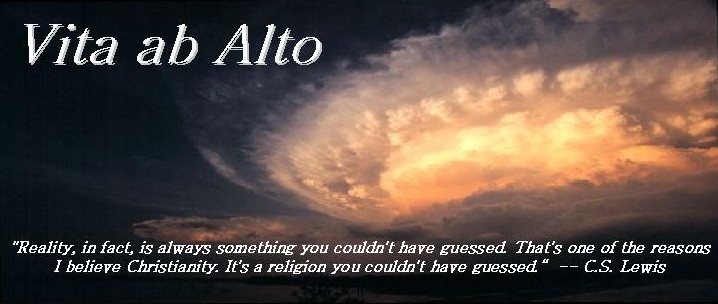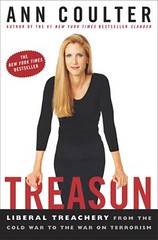I post
ChefJef's treatise without comment. It's not that I don't want to comment--I will, of course--but this tasty meal is only part way down the snake's gullet right now--swallowed, but only partly digested. I know "it's a long one" (a phrase
Spongebob hears quite often), but "read the whole thing," as they say...
Garry Wills’ statement that “Americans have now come to resemble the Islamic jihadists that we are fighting” is ridiculous. But equally ridiculous is Veith’s statement that “[F]ear is often a prelude to active persecution.” Well, the statement itself is true. But its implication that the left may attempt to “persecute’ – volatile word when combined with “Christians” – is as specious as the “evangelicals are the same as jihadists” schema that does seem to have an audience on the Left.
First, kudos to Monk’s post. It is brilliant and well written (as usual). But I do want to make a counterpart to one portion of his otherwise flawless treatise. Monk said:“The Bible's perspective on man's sinful nature is the only corrective to this. And this is one of the reasons that America's founding was so special: it was fundamentally conservative. It sought to build a government that acknowledged man's eternal nature and restrain or exploit his natural appetites for the common good, not intensify or pander to them.”
I agree with Monk’s first sentence whole-heartedly, and I agree with the paragraph in principle. But some of our key Founders underlying premises, in devising a government desigend to restrain man’s natural appetites, were not based (unfortunately) in Christian principles, but were, in fact, Enlightment period principles embodied in the “Social Contract” philosophy.
On the face of it, the Constitution is a pure expression of the social compact. Following in the footsteps of John Locke, Rev. Dr. John Witherspoon described the social compact as “an association or compact of any number of persons, to deliver up or abridge some part of their natural rights, in order to have the strength of the united body, protect the remaining, and to bestow others.” In Witherspoon’s “Lectures on Moral Philosophy” editor Jack Scott noted that “[T]he central tenet of Witherspoon’s political philosophy in common with those of other American revolutionists was the theory of the social contract.”
Madison and other of the founding generation were disciples of Witherspoon, President of the College of New Jersey (now Princeton University). Witherspoon looked to “sturdy common sense,” rather than biblical law as his source of authority in the civil sphere. His rationalistic approach to Scripture -as it speaks to the civil magistrate - is abundantly evident from his “Lectures on Moral Philosophy” (which were prepared for the senior class at Princeton and considered the culminating course of the college curriculum). They are based far more heavily on human reason and speculation than on biblical exegesis. Madison was an avid student of this philosophy.
Still, It is very important to note that some of the key founders were clearly influenced by Christianity. But, Witherspoon, Madison, Hamilton and others in this circle believed in a kind of practical, civil religion; a common sense ethic that would be inclusive of a fairly broad range of religious faith. This is why Unitarians like Franklin and Jefferson were welcomed.
In addition to Madison, Witherspoon influenced many of the delegates to the Constitutional convention. He was a Presbyterian minister who gave a big boost to Scottish, common-sense rationalism and established it as a credible school of thought within the church; it was an infusion of Enlightment reasoning into religious philosophy. In Witherspoon’s own words (see his “Lectures on Moral Philosophy”) this was a branch of Enlightenment thought in which, in his curriculum, he advocated a form of common sense politics, not explicitly Christian. Thus, natural law rules in the public sphere; there is a common ethic that governs all political entities. For example, we seem to find universal laws against murder in all civilized societies, regardless of their religious thought (Jew, Muslim, Buddhist, Pagan, etc.)
This sort of dichotomy found its way into Madison’s philosophy, and his commitment to Scripture was concomitantly problematic; though Madison had been influenced by Voltaire and other European rationalists to believe that the Bible was not divinely inspired, he did believe that a ‘high Providence’ directed the destinies of nations.
Still, Madison and Hamilton were extremely concerned about the leavening influence of “faction.” Madison in particular was concerned with the tendency of factions to be “actuated by some common impulse of passion, or of interest, adverse to the rights of other citizens....” (Federalist Papers #10). This is a legitimate concern. But Madison saw faction emanating from a variety of sources, including organized religion: “The latent causes of faction are thus sown in the nature of man...a zeal for different opinions concerning religion, concerning government, and many other points.... (Federalist #10).”
Madison regarded religion as a divisive and impotent force for social cohesion. “...we well know …that neither moral nor religious motives can be relied on as an adequate control [for faction].” This can also be found in sources other than the Federalist. For example, in Madison’s Detached Memoranda in the 1846 “William & Mary Quarterly” (3rd Quarter) Madison voices concerns about “the danger of silent accumulations & encroachments by Ecclesiastical Bodies” and “the danger of a direct mixture of Religion & civil Government.” Madison also lamented that, “[T]he establishment of the chaplainship to Congress is a palpable violation of equal rights, as well as of Constitutional principles.”
The First Amendment as well as his earlier “Memorial & Remonstrance in Virginia” make it clear that Madison believed government should keep its hands off the church, but also that religion should reciprocate and have little if any influence on civil government. He was committed to the ideal of a secular republic and a strict separation of church and state. In the place of religion Madison exalted the republican model as the remedy which “promises the cure for which we are seeking” (Federalist Papers #10). But the Republican model included, implicitly, certain Enlightenment principles.
The key to the success of Rome, Polybius declared in his “Histories (Book V1)”, was it’s mixed government. This was not an entirely new idea- Plato hinted at it in “The Republic”, as had Aristotle in his discussions of the polity. The Roman Republic (prior to Julius Caesar) was a model of this mixed form of government which divided power among three three branches of government: the Assembly, the Senate and an (executive) group of “consuls” to put the Assembly and Senates policies into effect. Thus, no one group was able to pursue it’s own interests at the expense of the common good.
A Republic, then, was a form of popular government, but it was never intended to be a democracy (the Greeks, with the exception of the Athenians, saw true democracy as rule without Divine authority, and were very leery of it).
Democracy, said Polybius, promoted vice- the self-interested rule of the common people- whereas a republic promoted virtue- the same type of “virtue” advocated by Rev. Dr. Witherspoon’s humanistic view of “common-sense” religion. Republican virtue, to the Romans and Greeks, was the ability to rise above personal or class interest, to place the good of the whole community above ones own personal or business interests.
A millennia later, under the inspiration of these ancient philosophers, Renaissance philosophers concluded that life on earth was not simply a vale journey that the Christian (in their view) must take on his or her way to the Kingdom of God in heaven. On the contrary, life on earth was worth fully living.
These ideas were developed more fully by Machiavelli . For Machiavelli, a serious writer of political philosophy, the republic was a preferred form of government in which vigilant citizens jealously guard their liberty against encroachment by would be tyrants. Liberty, as Machiavelli understood it, is self government. He saw complacency and indifference among the populace as death to a republic.
In his “Discourses,” Machiavelli asserted that a complacent and indifferent citizen is one who cares more for money and luxury than the commonwealth; the love of wealth, luxury, and ease, combined with a corresponding indifference to public affairs is corruption, and the greatest danger a republic faces is corruption from within.
A mixed government, a virtuous citizenry, the rule of secular law- this was the ideal of the “republic” that Machiavelli adapted from Plato, Aristotle, and Polybius in his “Discourses.”
This vision inspired what is referred to as the “Atlantic Republic tradition;” a way of thinking about politics that spread from Italy into Great Britain in the 17th century and found it’s way into the writings of economists and philosophers such as John Locke, John Adams and Rev. Dr. Witherspoon. James Madison put it this way in Federalist #39:
“The first question that offers itself is, whether the general form and aspect of the government be strictly republican. It is evident that no other form could be reconcilable with the genius of the people of America; with the fundamental principles of the Revolution; or with that honorable determination which animates every votary of freedom, to rest all our political experiments on the capacity of mankind for self-government. If the plan of the convention, therefore, be found to depart from the republican character, its advocates must abandon it as no longer defensible.”
American colonists opposed to King George III’s increasing tariffs and despotism couched their arguments in republican terms, but with a new twist. They developed an idea called democratic republicanism. James Madison was a primary proponent of this ideal. He believed that a republic was desirable, but the key to a successful republic was to “keep ambitious people from destroying liberty.” But Madison saw religious zealots as “ambitious people.” In his words, “Ambition must be made to counteract ambition...It may be a reflection on human nature, that such devices should be necessary to control the abuses of government. But what is government itself, but the greatest reflections upon human nature? If men were angels, no government would be necessary. If angels were to govern men, neither external nor internal controls on government would be necessary. In framing a government which is to be administered by men over men, the great difficulty lies in this: you must first enable the government to control the governed; and in the next place oblige it to control itself.” (The Federalists #10)
There is a noticeable absence in Madison’s analysis; no mention of God or biblical principles. His reference to men not being angels and angels not governing is an implicit admission – if one reads back to some of Rev. Dr. Witherspoon’s teachings - that he does not trust human nature, whether they be a “religious” man or not. I think that the Founders rightly saw the danger of establishing or subsidizing any particular Christian denomination. However, in their zeal to disestablish all denominations at the national level, they also disestablished religion, and thereby God. Even for those among you who hold the idea that the Founders were Christian men intending a “Christian based Constitution,” or a “Christian-principle based” constitution, even if that is what the Founders may have meant, latter day atheists and non-Christians (of which there are obviously too many in America) have taken their words at face value to reinforce the view that Christianity should be excluded from the public square. The seemingly innocuous seeds sown so many years ago by the key Founding Fathers, in the Constitution, the Federalist Papers, etc., are today bearing a bitter harvest.
Chefjef
Read more




 or this?
or this? 

